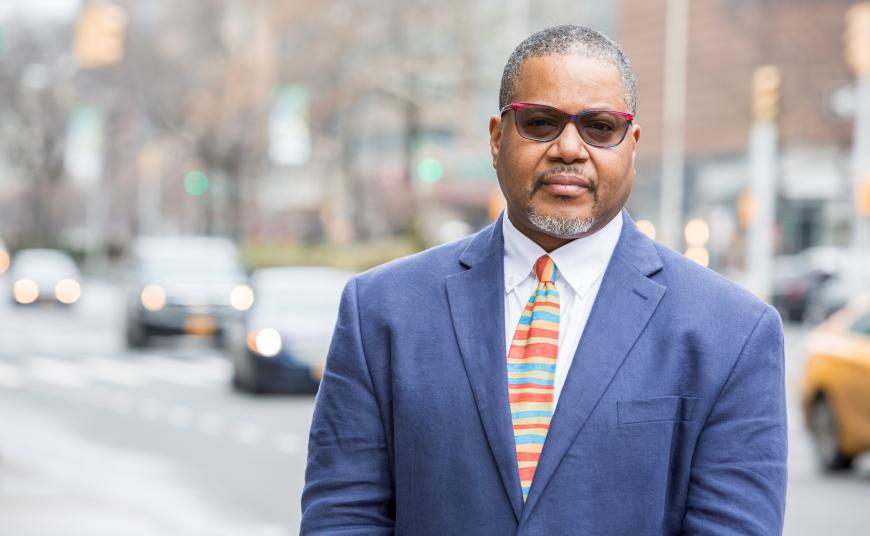
When you imagine an “emerging” composer, you don’t picture someone who is 54 years old. But Trevor Weston is exactly the musician that the partnership of the San Francisco Conservatory of Music, the San Francisco Symphony, and the SFCM President’s Advisory Council on Equity and Inclusion set out to find with their Emerging Black Composers Project: a composer of quality overlooked because of the historical racial inequities that afflict classical music, as well as every other area of American life.
Weston’s four-movement orchestral work Push was premiered by the SF Symphony in late September, to universal praise. It was his first performance by a major orchestra but not his last: In May 2023, he will have a New York Philharmonic premiere as one of nine composers commissioned under the Composing Inclusion program, conceived by Weston Sprott, the dean and director of The Juilliard School’s preparatory division, and backed by the Sphinx Venture Fund. Also in May, Weston’s commissioned oratorio, American Lamentations, will have its premiere with the Saint Thomas Choir and Orchestra of St. Luke’s. In December 2022, Weston’s Slowly was performed by The Choir of Trinity Wall Street on a concert commemorating 100 years of the “Carol of the Bells.” Weston has also written Flying Fish for the American Composers Orchestra and Dig It for the Bang on a Can All-Stars. He is a professor of music at Drew University and teaches in the Music Advancement Program at Juilliard.
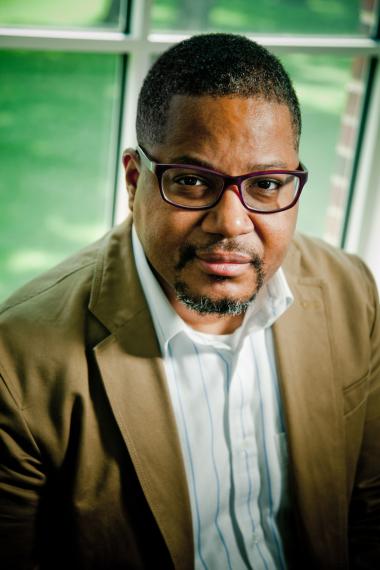
Weston took his B.A. from Tufts University and then became, at 22 years old, the first Black graduate composition student at UC Berkeley, studying under Andrew Imbrie and then Olly Wilson, a great Black composer in his own right. Weston takes from his Barbados-born parents and relatives an easygoing manner and a penchant for storytelling that is coupled with a sharp intelligence that delves deeply. In this first part of our conversation, we talked mainly about his experience with the Emerging Black Composers Project and the writing of Push.
People our age, we’re past the point of emerging.
The point [of the Emerging Black Composers Project] is that because of the history of programming of new music, and especially of music by people of color, most people don’t know who [those composers] are. So one rubric they were using is “this award is open to everyone who hasn’t had a performance by a major orchestra,” which is something I’ve never had happen.
American Composers Orchestra doesn’t count?
That’s a great orchestra, but for example, their string section is tiny; they don’t have a full string section. So the piece I wrote for them, Flying Fish, is a smaller string section. They’re thinking one of the top five orchestras in the nation so that there is more public awareness, one, and two, that you have a name that people recognize.
It is true that composers with much less experience than you collect orchestral commissions much more easily. Anna Clyne springs to mind.
Even someone like Adolphus Hailstork, who is known and has written a whole lot of music and only in the last three years are people performing him. You asked me if I had met him, and I taught at Wabash College a long time ago (it was 1998–2000), and I remember he called me because he was leaving a job at Norfolk State University and he was calling people, but other than that I haven’t had much contact with him. I remember that Wabash College had a fanfare of his in its wind ensemble library, but up until after [the murder of] George Floyd, I didn’t see many performances of his. So this came up also with the American Composers Orchestra when they asked me to write Flying Fish. They said, “We’re trying to address the issue that in commissioning there’s a huge emphasis on the new and young, and the people who aren’t so young get kind of lost because you are ineligible to apply for certain contests but you’re still working on getting your career going.” So I think this Emerging Black Composers Project is addressing the fact that there are people who have been writing for a long time, but they just haven’t had the opportunities.
Visibility comes from a performance from, say, the San Francisco Symphony.
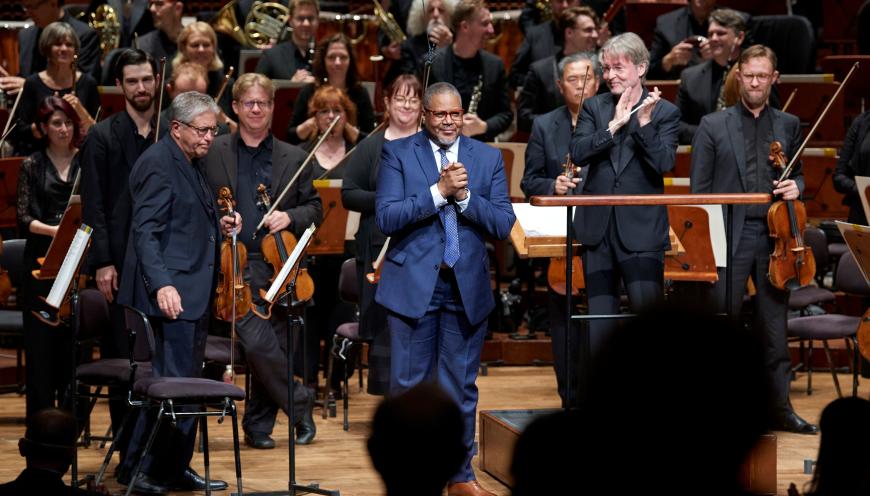
So this is a big deal for you?
Oh, a huge deal. Because, as a graduate student at UC Berkeley, I had a season subscription for students, so I remember seeing the Turangalîla Symphony [by Olivier Messiaen] performed by them; I remember seeing maybe one or two performances where [Witold] Lutosławski was conducting his own music. In fact, I brought some of those programs with me to, I don’t know, close the loop, as it were, of going to hear them and then writing a piece for them.
Who did you connect with on this project, and did anyone suggest anything to you about writing the piece?
So I learned about the award, that must have been maybe fall 2021, had a Zoom meeting with Hank Mou at the [San Francisco Conservatory of Music] and Michael Morgan and Phillippa Cole at the SF Symphony. And the other aspect of the award is not just the commission but also creating professional relationships with the Symphony and the Conservatory to help promote my music. So that’s already happened; there’s an ensemble in the Bay Area that has applied for a grant to commission a piece from me, and they contacted me because the Symphony said, “Oh, you should ask Trevor.” That’s a really important positive step [for my career]. I was going to have more contact with Michael Morgan, but sadly he passed away.
When I asked what they wanted, they said, “Whatever [you want to do],” and they gave me possibilities for instrumentation. And when Phillippa contacted me with that list, she said Maestro Salonen said if I wanted chorus, they were going to pair my piece with Mahler [Symphony No.] 2. And I said, “No thank you, I’m not writing a piece for chorus and orchestra to put next to Mahler 2!”
I completed a commission this past summer for the Washington Bach Consort that was in response to Bach’s Cantata BWV 201, that was for Baroque orchestra with choir and soloists, and I’m writing an oratorio for Saint Thomas Church [New York], my old choir, for next year, so that’s going to be with the Orchestra of St. Luke’s. Did I tell you I was a choirboy there? This has been in the works for a while. There was someone on the vestry [council] who wanted a piece for George Floyd, and so I’m writing a piece that deals with the history of slavery in the North, especially New York, and connections between slavery, African American history, and the Episcopal Church, and also connections to Saint Thomas. The person who commissioned it did all this research and came up with this long libretto, and it’s not actually a libretto, it’s a historical document. So I have that, and years ago I was supposed to write a requiem about rice workers and how slavery worked in South Carolina and a historian came up with a libretto and I turned it into something I could use. And I’m going to do something similar here. I want to mix in some spirituals and hymns and psalms, so it’s a combination of things.
Anyway, in March they flew me out for a meeting with Esa-Pekka Salonen, which was amazing. And one of the reasons — obviously, he’s a great conductor and a fantastic composer — but after I heard the Turangalîla Symphony, I went to The Musical Offering in Berkeley — you know I worked there for two years during graduate school — and bought a recording of Esa-Pekka’s Turangalîla, and I lived by that recording. So meeting him, I tried not to fanboy too much, and we had this amazing conversation. Because the only thing I had in mind was that I wanted to incorporate aspects of pygmy music in this piece.
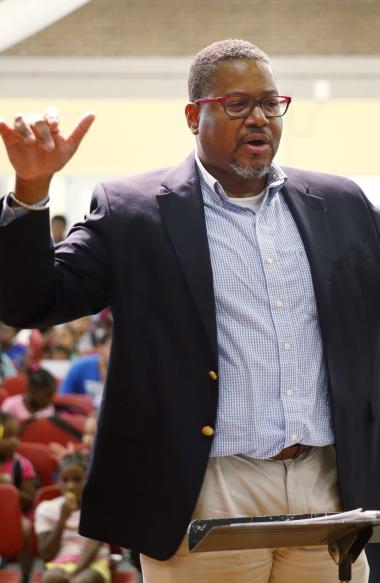
Why?
Well, I took West African drumming at Berkeley with C.K. Ladzekpo, and even before that, at Tufts University, I took a course in African music. And I took Olly Wilson’s course [at UC Berkeley], we talked about pygmy music. I was an assistant to him in the course, and I’ve always loved the rhythm. And when György Ligeti came to Berkeley, and he talked about his etudes, he said the first one, “Disorder,” was influenced by pygmy music. So he went on about the intricacies of pygmy music. And there’s a book by a writer named Simha Arom about polyphony and rhythm in Central African music, and I didn’t know, until I bought the book, that the foreword was written by Ligeti.
So when I mentioned that to Esa-Pekka, he said, “Oh, you know I wanted to bring a pygmy ensemble to Helsinki,” but they were coming for this festival and someone told him that they had never left this specific area of the world and they probably would get sick. He told me, “There’s a great book on this,” and I said, “Yeah, and it’s in my bag.” I’ll be honest, I was a little nervous meeting [Salonen], and at that point I wasn’t sure what I was going to do; I had that idea and maybe a couple of others but nothing in stone. But it was great, and I had some questions about complex rhythms, and he had some suggestions about that. And [before] rehearsal he had the most amazing comments, like about how strings work — things that you would not read in a book on orchestration.
Like what?
He said, “You have places where, you know, normally the first and second violins are in octaves, but you have some places where you have both sections playing really high.” And he said, “The issue with that is that the higher instruments go, not just string instruments, they tend to go sharp.” And he said, “When the two sections are playing in unison up there, the seconds are no longer anchoring firsts from going sharp.” That was like a Zen master to me. So after that meeting I had a meet and greet with some students at the San Francisco Conservatory, and I mentioned that, and the brass players were all like, “That’s definitely true because when we go higher, we [have to watch out for that.]” And Salonen also had this great discussion about violin playing, like, “You know, the movement of the bow and the movement of the fingers, it’s like ballet for them, so they’re used to moving in a certain way.” And I have a lot of places where the bowing is detached, like separate bow strokes, and he said to me, “That’s like them calculating math over and over again; it’s not the fluidity of ballet, where sometimes they’re stopping a note and just holding it, or they’re moving the note but the bow stroke is not changing.” He said, “That’s what they’re used to; it’s not that they can’t do [the other], but it eventually affects their sound.”
So to me, that’s an essential part of this whole award. Having a 20-minute conversation with Esa-Pekka Salonen about something so specific encompassing years of experience … is priceless.
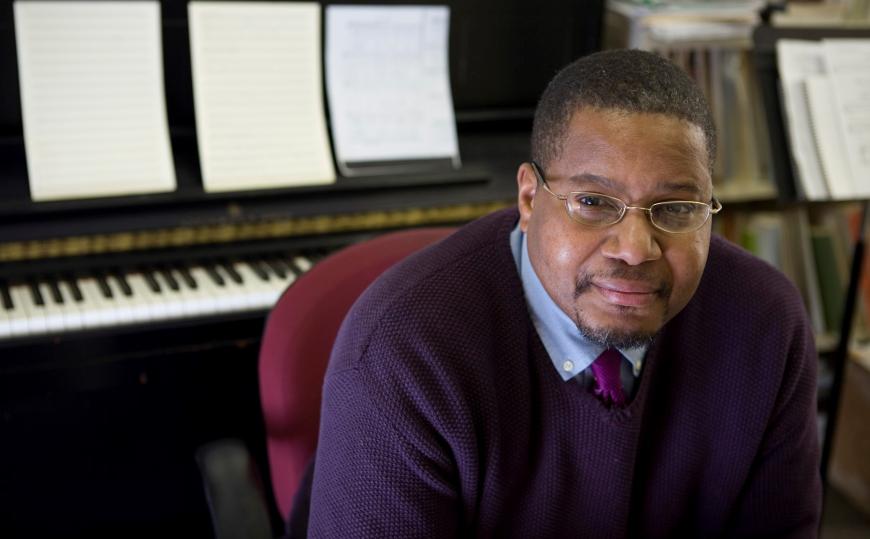
Isn’t it wonderful that you can be doing something for 30 years and still be learning stuff about it?
But see, otherwise music wouldn’t be so interesting. It’s interesting because it’s complex. Well, it’s complex and not complex. Coming out of the 20th century, there was definitely an aesthetic that most people were writing to, of complexity first, and that was how I used to write music. And now I’m at the point where, you know, binary code is made up of zeroes and ones. Complexity is usually based on simple things. And going back to Ligeti, he said pygmy music is not just clashing rhythms; each rhythmic cell is something simple that you can hear. And what makes it complex is that you hear it changing against something else that’s changing, so you can [follow] it.
So I went off and wrote the piece over the summer, got COVID, so that affected things. And then I decided that I should write a movement in memory of Michael Morgan because this would not have happened without him. And then the title, Push, comes from the last essay that Dvořák wrote about American music. And in this last essay, Dvořák says, “I’ve been criticized for saying American composers should use this music from the plantations, which I think is really valuable. And people have been telling me that Stephen Foster wrote beautiful tunes, but from what I understand, those melodies come from the same place.” And he also said that when he first got to the United States, he was annoyed by American students always wanting to run before they could walk. And he realized that in America everyone wants the latest. They want to do the next thing. And he called it “American push.” And at first, he didn’t like it, and then he realized that it was something unique about this country, people always pushing forward with something new.
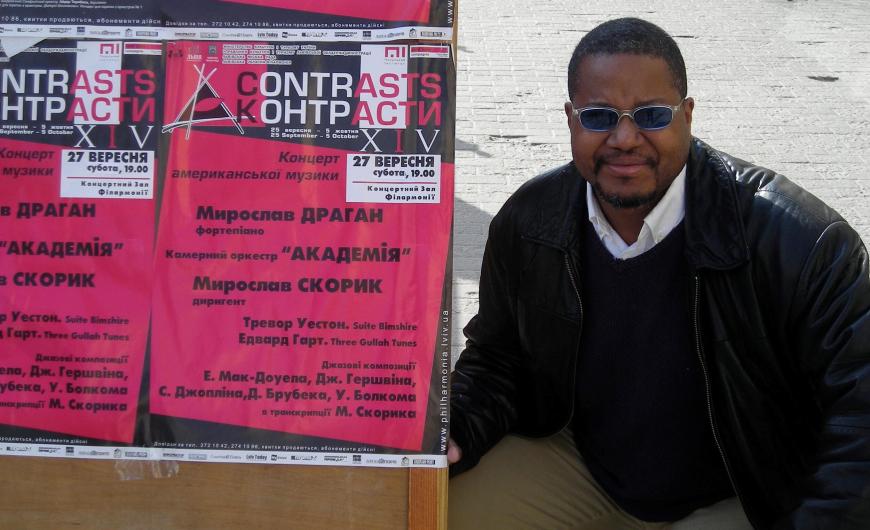
So you’re bringing in a wide variety of influences to this piece.
Yeah, that’s where I am now. I don’t put up walls between choirboy singing Anglican music — I remember sitting in Jane Bernstein’s music history class and asking, “Are we going to cover [Anglican church composer] Herbert Howells?” and her saying, “What? No, this is 20th-century music, why would we cover him?” Oh well, you know he’s important in my life. So there’s that background and then, obviously, studying with Olly Wilson and Andrew Imbrie at Berkeley, going to IRCAM [the famous Parisian new-music and music research center] as an auditor, and singing with the [UC Berkeley] Chamber Chorus and working on a lot of early music, singing in an early-music group that only did ars nova music [14th-century polyphony), teaching African American music history. At a certain point, I said, “You know, maybe I shouldn’t put up walls, and every piece will reflect something, but I’m not going to silo pieces based on all these experiences.” Because the more I mix them together, the more it becomes my unique self.



